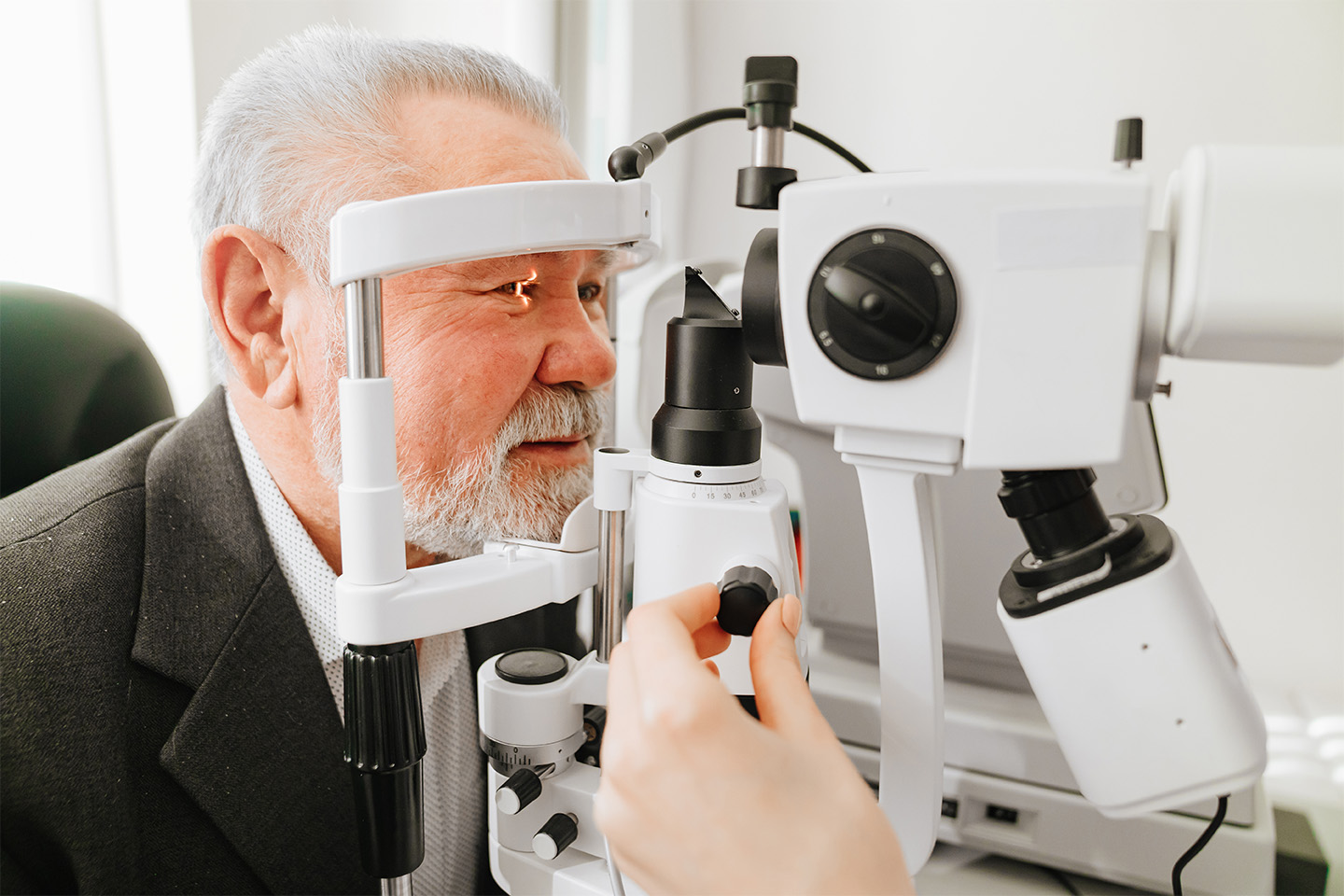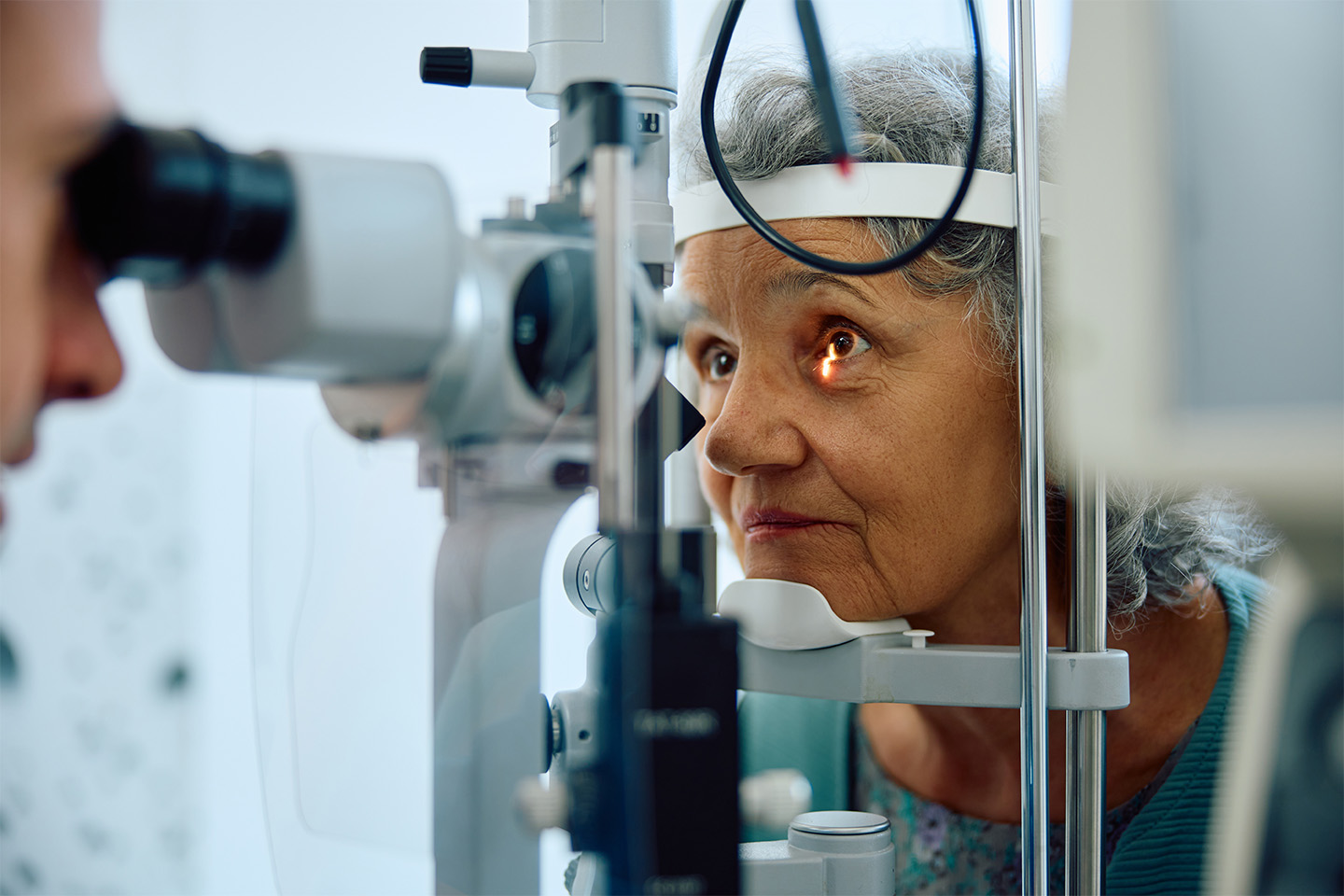9 Common Questions About Clear Lens Exchange

At Kleiman Evangelista Eye Centers, we provide a number of corrective eye surgeries using laser technology, including LASIK and laser-assisted cataract surgery. If you have an extreme prescription, thin corneas, or are experiencing signs of early cataracts that could exclude your from LASIK surgery in Dallas, you may have questions about the Clear Lens Exchange (CLE) procedure. We address the top 9 questions for this procedure below.
1. What is clear lens exchange?
Clear Lens Exchange can eliminate your dependence on glasses. CLE replaces the natural lens with a durable artificial one. This is the same procedure as cataract surgery. The intraocular lens provides a sharper focus and can eliminate the need for bifocals or reading glasses.
t’s important to note that CLE differs from LASIK eye surgery in significant ways. For example, LASIK surgery corrects for moderate myopia, hyperopia, and astigmatism, while CLE corrects for more severe hyperopia, presbyopia, and early cataracts. Fortunately, our eye doctors are experts in both cataract and LASIK eye surgery in Dallas, so you are in good hands!
2. Is eye lens replacement safe?
Clear lens exchange is a safe medical procedure and millions of people receive this surgery every year. There are possible complications as with any other surgical procedure, but they are relatively rare. Our doctors perform all the necessary tests and evaluations prior to performing the procedure. if you have any questions on lens replacement surgery or any of our other services, do not hesitate to ask our dedicated team of eye doctors.
3. Is lens replacement surgery permanent?
Yes, when you receive an artificial lens, it permanently replaces your natural one. Fortunately, these lenses are very durable and made to last a lifetime. Therefore, while the effects of LASIK do tend to wear off, provided that the health of your eyes remains stable, your vision should not change after CLE.There are minimal risks associated with the procedure.
4. How long does it take for a lens implant to heal?
Healing following lens implants can take up to 8 weeks. However, it doesn’t take that long to see the positive results in your vision. Most people can see well approximately 1 week after surgery, while on average it takes about 1 month for the vision to stabilize.
While your eyes are healing, take the following precautions to accelerate the healing process and protect your eyes:
- Avoid rubbing your eye and do not press on it even if it feels itchy.
- Use the medicated drops provided to help your eyes heal faster.
- Cover your eye with protective eyewear as directed by the doctor. You will wear your protective patch or glasses while you sleep for 1 week.
5. Can a lens implant shift?
Following surgery, it’s possible the lens implant may shift. However, this is very rare. In some cases, you will need to undergo surgery to replace the lens. If your lens implant moves, you may experience loss of vision or blurry vision.
6. Can you go blind from lens replacement?
Lens replacement surgery carries a minimal risk for your vision. However, if you have a high degree of nearsightedness or a long eye axial length, you carry a higher risk of retinal detachment, which can lead to infections, blindness, and complications. However, this is a very uncommon occurrence.
7. How long do halos last after lens replacement?
For a few days after lens replacement, you may notice glare and halos around bright lights. Most people experience this effect immediately following surgery, but it diminishes each day as your brain adapts to the lenses. Most people stop seeing halos about 1 month after surgery. Follow the surgeon’s instructions for care and use your eye drops frequently to avoid prolonged halos and haze.
8. How long after lens replacement can I drive?
You should be able to drive within 24 hours following CLE surgery in Dallas. This varies for each individual, and you should ask your surgeon about it when you return the day after the procedure for a follow-up appointment. Ask the surgeon any questions you may have regarding your recovery. You should plan to have someone drive you both to your surgery and your 1-day post op appointment.
9. How long do replacement lenses last?
Replacement lenses last a lifetime under normal circumstances. If the capsule holding the lens becomes opaque, you may need additional laser surgery to correct the problem. However, this additional surgery is a quick in-office procedure. However, IOLs are more durable than your natural lens and normally do not require replacement.
Contact Kleiman Evangelista today to speak with our team and determine if Clear Lens Exchange could be right for you.









